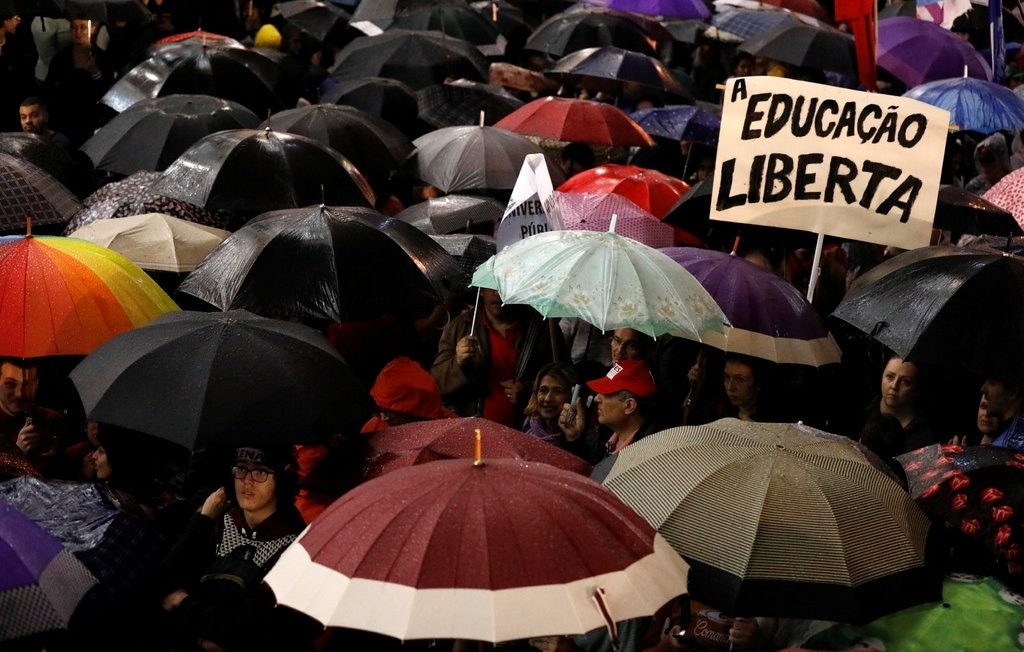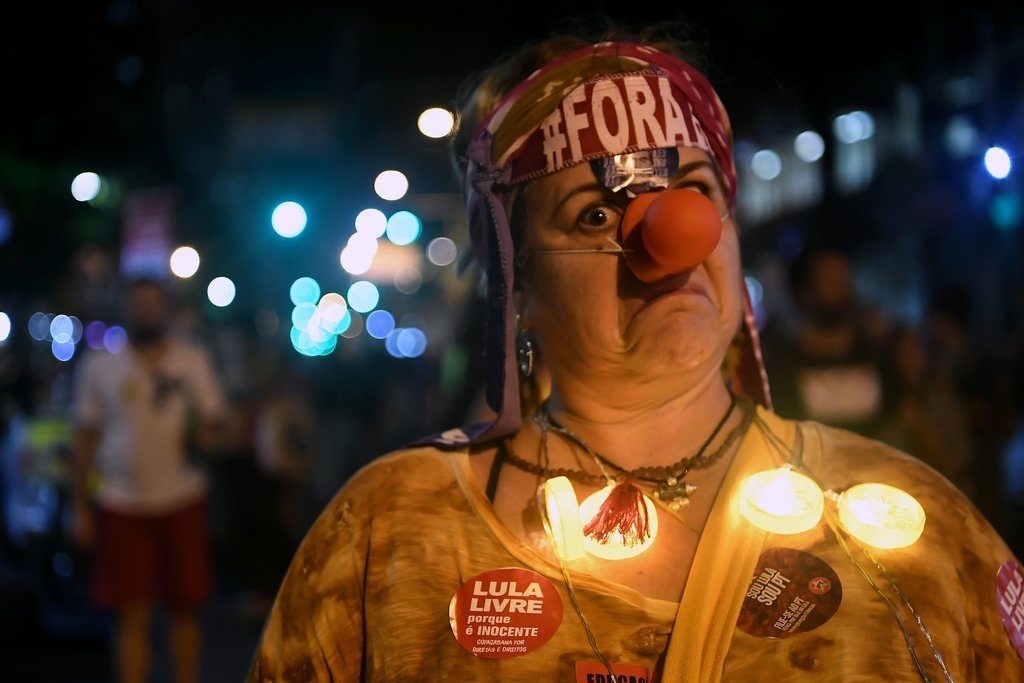
Brazil’s education system is being strangled by a president who doesn’t believe in learning
The New York Times
Jun. 12, 2019
by Vanessa Barbara
Contributing Opinion Op-ed Writer
SÃO PAULO, Brazil — According to President Jair Bolsonaro, Brazilian education leaves a lot to be desired. “Everything is going increasingly downhill,” he said last month, to journalists during a trip to Dallas. “What we want is to save education.”
That would seem a reasonable thing to say if Mr. Bolsonaro were, for example, announcing a new education plan or a substantial increase in spending on public schools. But instead, he was alluding to a $1.5 billion “freeze” to Brazil’s education budget. (The government insists on calling it freeze, rather than the cut it is; that’s because, in theory, the funds will be made available when the economic situation improves.) These cuts amount to 30 percent of the discretionary budgets (which cover utility bills, scholarships, cleaning, maintenance and security, among other things) at all federal universities.
The cuts could have concrete impacts, very soon. One of the oldest universities in the country, the Federal University of Paraná, has only a hundred days before it will have to close its doors because it can’t afford to pay for water and electricity. The government has also suspended all future grants for masters and doctorate research.
The cutback hasn’t been limited to higher education: Funding for high schools, elementary education and even day care centers has also been very much affected.
But the situation is most dire for federal universities — schools which, over the last few decades, have achieved a respectable position in Brazilian education, offering high-quality, tuition-free courses for more than a million students. The first step in Mr. Bolsonaro’s rescue plan, in other words, is to throw a few survivors overboard.
But that’s just one example of our president’s nonsensical logic. On that same occasion in Dallas, Mr. Bolsonaro was asked about the tens of thousands of Brazilians, many of them students, who have gathered to rally against the education cuts. He called them “useful idiots and imbeciles,” adding that they have nothing in their heads. “If you ask them what’s the formula for water, they don’t know.”
This from a man who once confessed that he had never read a novel in his life. (To be fair, he said this in an interview 29 years ago, after being elected to Congress. Since then, he’s had time to read at least all the Russians, and I’m sure he has.) This same man also declared, after a visit to Israel’s official Holocaust memorial, that Nazism was a left-wing movement, since the Nazi party has the word “socialist” in its name.

For Mr. Bolsonaro, as for many political leaders nowadays, an “imbecile” is any impractical thinker. This group includes all sorts of idealists — socialists, environmentalists, pacifists — and also those with occupations that produce nothing tangible or profitable, like humanities professors and artists. Sure enough, in April, Mr. Bolsonaro tweeted that the government was considering withdrawing public funding for philosophy and sociology courses. Instead, it would concentrate its spending on areas that create “immediate return for the taxpayer,” such as veterinary science, engineering and medicine.
Such disdain for the humanities is a clear mistake. If anyone needs basic philosophy and rhetoric courses, it’s our president, who, in front of reporters, seems incapable of meeting even minimum standards of reasoning. He often answers their questions with random platitudes, in the confused way of someone who is reading a distant, blurry teleprompter. Then he invokes a passage of the Bible (“Ye shall know the truth, and the truth shall make you free” is a favorite) or some out-of-place piece of trivia that has little to do with the issue at hand (that the state of Texas collects no income tax is a go-to). If all else fails, he discredits the question, the media outlet and even the journalist.
What’s the educational background of the man himself, you might ask? In 1977 he graduated from Agulhas Negras Military Academy, which offers “solid background in exact sciences, at a complexity similar to that of an Engineering degree,” according to a biography page on the government’s official website. However, the current curriculum of the Academy, pera recent master’s thesis, doesn’t include courses on physics or calculus. What it does include are many hours of philosophy, sociology, law, geopolitics, psychology and military history. When he criticizes the humanities, the president undermines the disciplines integral to his own education in the military sciences.
Mr. Bolsonaro also earned a degree in physical education from the Army School of Physical Education, and would later become a master of parachute jumping, as part of the paratrooper brigade of Rio de Janeiro. “He won first place in a class of 45 students at the Army Physical Education School, as well as first place in the autonomous diver course offered by the Search and Rescue Group of the Rio de Janeiro Fire Department,” the government’s website says.
But the president prefers to emphasize the practical training he received in the Academy as opposed to those useless ethics classes or all that military criminal law nonsense. In a Facebook Live transmission last April, Mr. Bolsonaro praised a refrigerator and TV repair course that he undertook as an army lieutenant decades ago. “If I were to practice that profession out there today, I would earn more — a lot more — than people with a college degree.”
And that, after all, is paramount. The education minister agreed, adding that the government’s primary goal is to teach basic skills to children, such as reading, writing and math. Then they would teach an occupation that can generate income for the student and their family.
Enough of philosophy, sociology, literature, and the humanities. Who needs reasoning when, without it, our children can still grow up to be future Brazilian presidents?
Vanessa Barbara is the editor of the literary website A Hortaliça, the author of two novels and two nonfiction books in Portuguese, and a contributing opinion writer.

